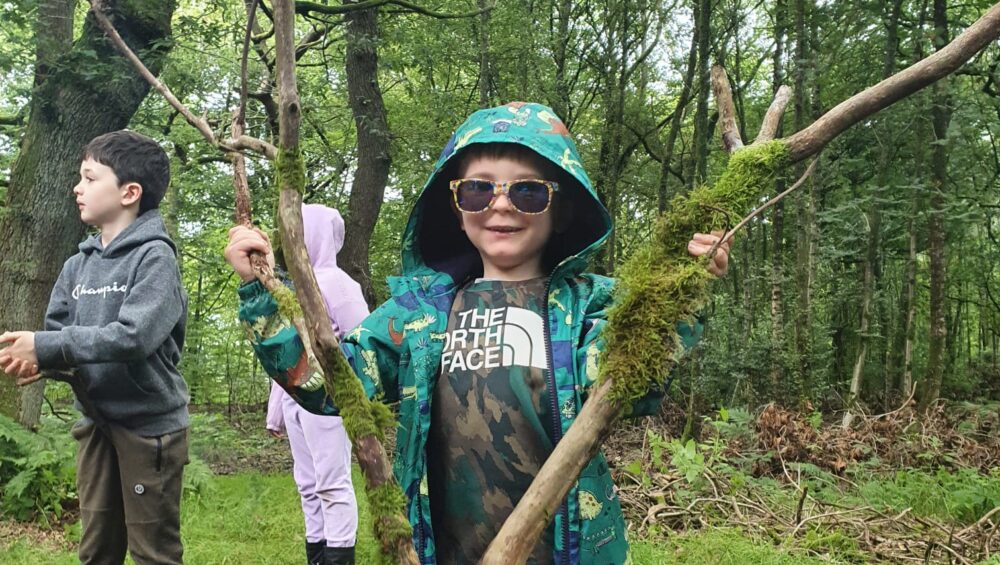“Children need freedom and time to play. Play is not a luxury. Play is a necessity.”
Kay Redfield Jamison
Perhaps before we can begin to consider the importance of free play, we need to understand just what it is. Much is said about it and much has been written about it too. Those who care for and work with children may agree on its importance but do not necessarily agree on a clear definition. Play Scotland quote two children in their leaflet ‘What is Play?’ The first said, ‘It’s what I do when everyone else has stopped telling me what to do” and the second, “sometimes I make stuff, sometimes I like to play games, sometimes I like messing about, sometimes I don’t like doing anything”. I love these quotes because they sum up play in crucial ways often overlooked by adults.
So… what do we think play is?
Free play is play.
If play is free, it is also child-led
Play can be silly or serious, boisterous or calm, solitary or sociable
It can bring playful adults and children together
It is essential to learning for children of all ages
Play is not frivolous; it is serious and complicated. Essential to all learning, it supports children’s holistic development- social, physical, intellectual, language, creative, emotional and spiritual. And when holistic development is supported, well-being is nurtured.
However, free play is under threat. Societies focus on academics, extra-curricular activities, busy lifestyles, school homework, lack of freedom due to concerns about safety- all these reasons shift our priorities and rob our children of time and opportunities to play freely. And if play is under threat perhaps holistic development is not being fully supported, with potential damaging consequences for well-being.
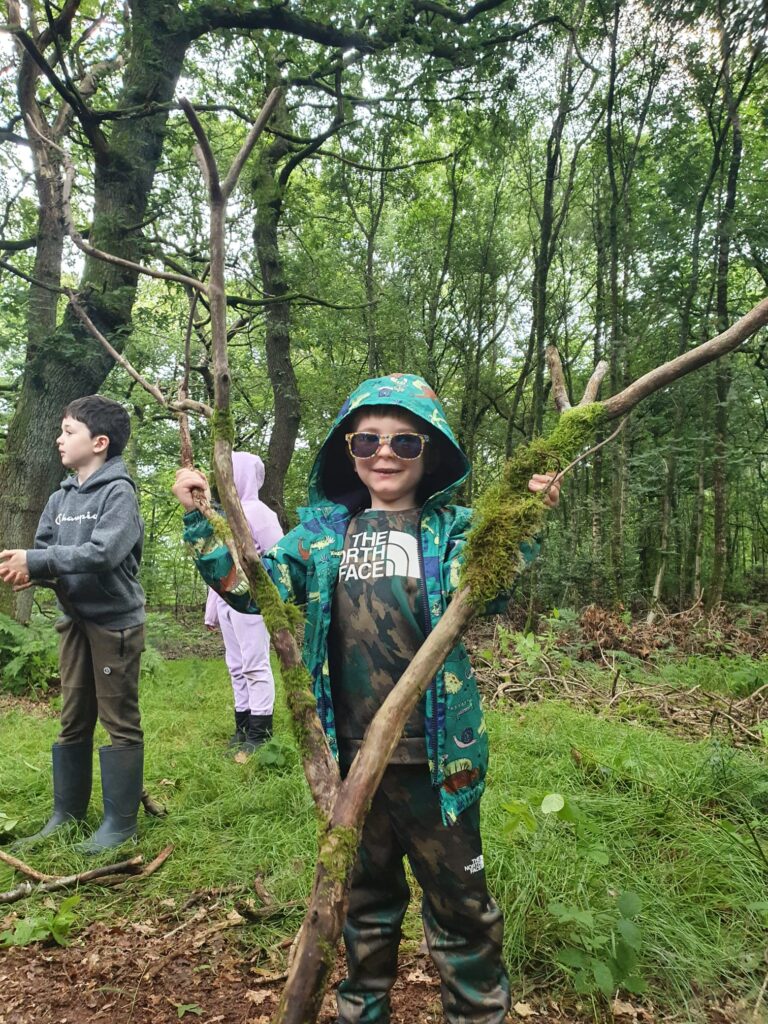
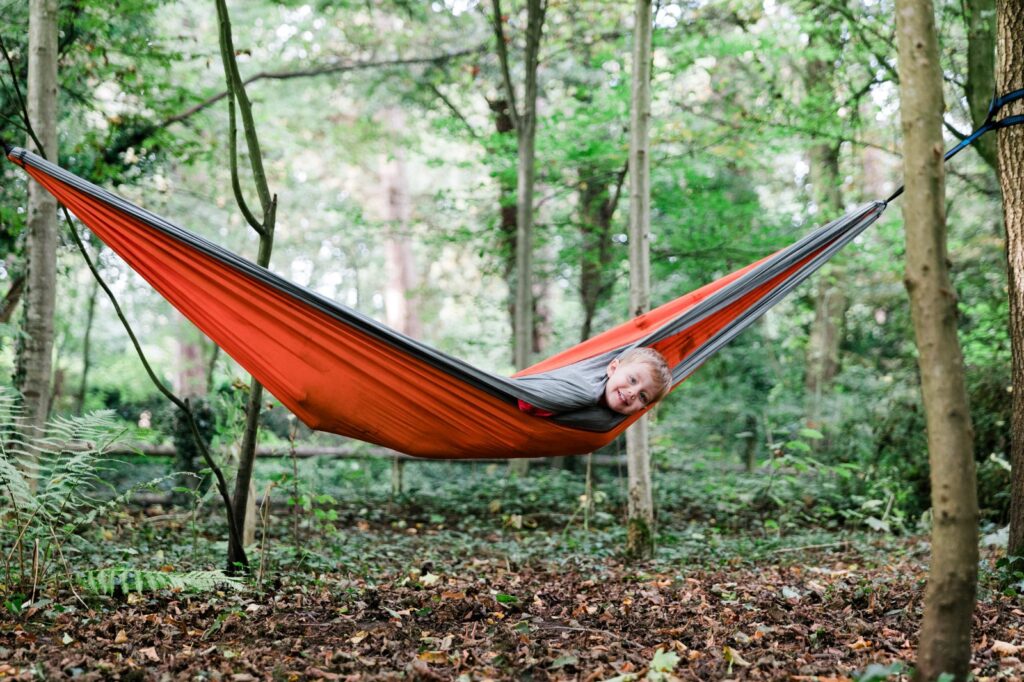
Play. Holistic development. Well-being. All three are intertwined and underpin much of what Forest School in woodland settings is about. At Forest Frontiers we often plan activities as a starting point, but children invariably have their own ideas, particularly those who come back to the woodland regularly. Over time, with regular visits, children grow in confidence. Their ideas develop from one week to the next and they are able to repeat activities and hone their skills. This is when children come into the woods with play ideas of their own. This is when we can respond to them most successfully, when our play ideas might be used to support theirs.
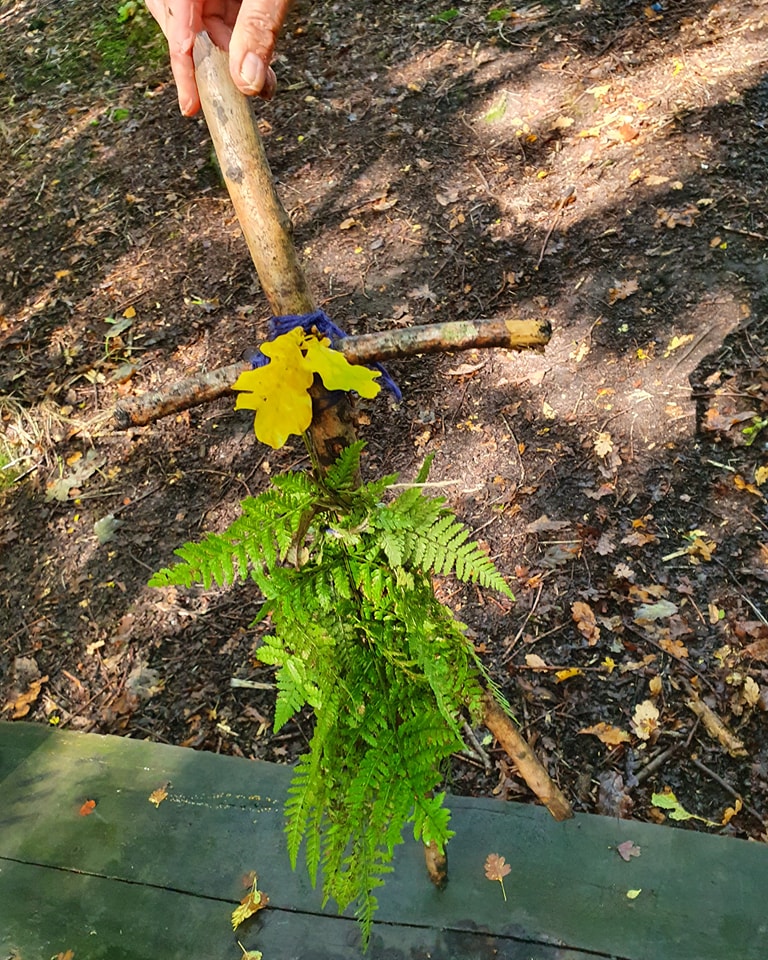
The woodland is a special place to play. Some of our older children, and indeed adults, have described it as their ‘happy place’. Regular contact with the natural world supports holistic development allowing children to make deeper, caring nature connections. Why would anyone be bothered about protecting the natural environment if they had no understanding of it and had had no meaningful experiences within it? Healthy holistic development is also a positive force within the community- family, school, work. Forest School is also about community. Individuality and inclusivity are core values. Everyone’s ideas, thoughts and feelings are respected and valued. Our rules are clear and simple- look after yourself, look after each other and look after nature. The rules aren’t constraining. They allow everyone to flourish.
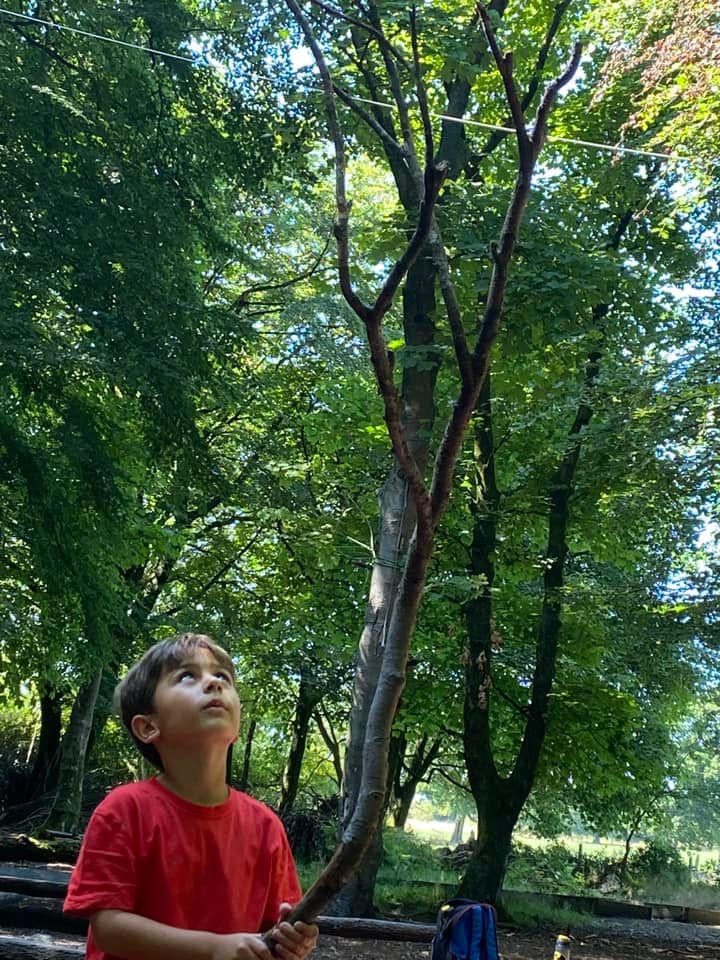
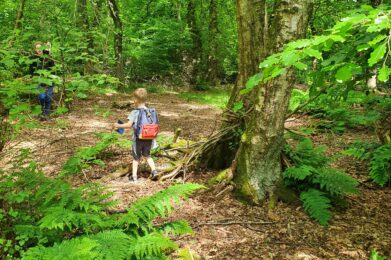
And flourish they do. We have had school groups come to our site over extended periods of time and we love it when teachers comment positively on the differences they can see. Children who might struggle to manage their behaviour are often more able to regulate their mood. Within the woodland there are no walls to constrain and there is space and time to calm down. Calmer children are happier children. Happier children can have healthier relationships. Children who are less academic often find ways to shine- they might be the tree climbing expert or the brilliant den builder. Free play doesn’t dictate a right or wrong way of doing things. ‘Mistakes’ are learning opportunities. And ok is well … ok. When striving and pressure are lifted, confidence can soar. Sometimes teachers see the quiet, underconfident ‘school’ child become a leader in the woodland.
Free play, the forest school way, supports risk taking when the benefits outweigh the risks. The woodland is the perfect environment for risky play- ‘rough and tumble’ games, climbing trees and hanging upside down in them, swinging on ropes, playing near water, using tools, lighting fires and playing in different weather conditions such as rain and snow. Children supported to manage these challenges successfully can reap the benefits of improved self-esteem.
“Play is not
a frivolous, purposeless activity. Play is learning” (Cari Ebert, Early
Childhood Specialist). Free play is real play, and the woodland environment is
a perfect playground, all year round.
By Heather – Forest School Trainee Leader


